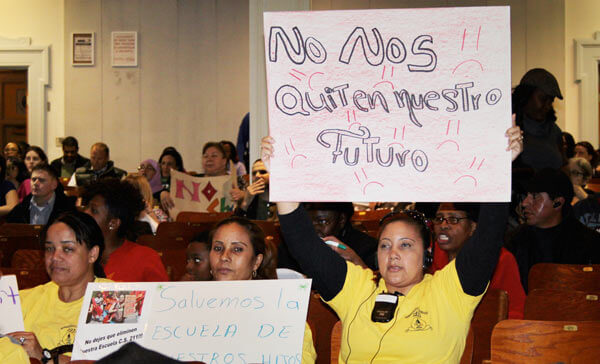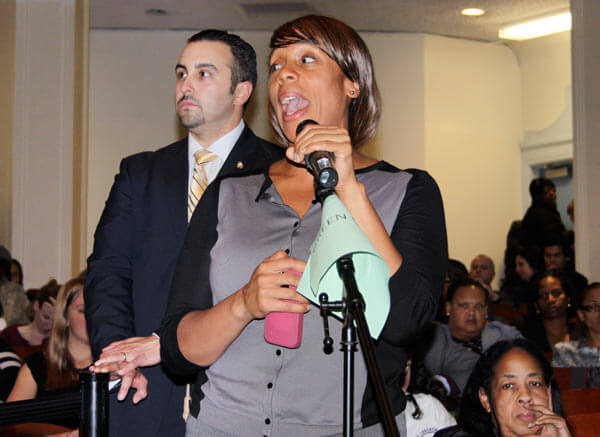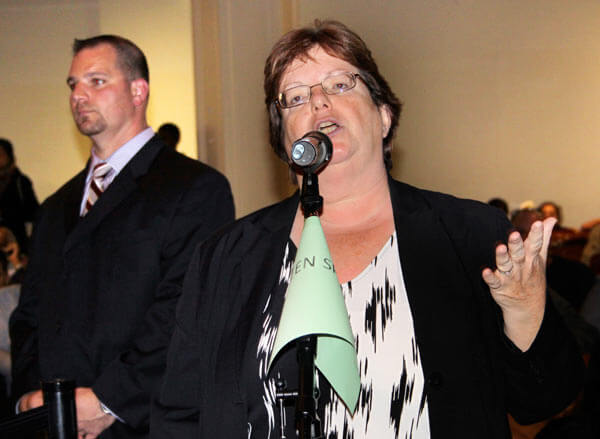By Rich Bockmann
Public Advocate Bill de Blasio’s victory in Tuesday’s mayoral race may prove to be a reprieve for a handful of Queens schools facing co-locations next year.
The city last week approved plans to trim enrollments at seven Queens schools in order to make room in their buildings for five new schools the city Department of Education plans to open, as well as two charter schools awaiting approval.
Mayor-elect de Blasio has in the past blasted the Bloomberg administration not only for its co-location policies, but also for putting forward proposals that will go into effect after the administration leaves at the end of the year. It was unclear what de Blasio will do with the co-locations approved by the city Panel for Educational Policy at its Oct. 30 meeting at the Prospect Heights high school campus in Brooklyn, but his supporters said they believed it was the end of an error for the controversial policy.
“The days are short. I and many others were elected to the Council because I emphatically oppose co-locations,” said I. Daneek Miller, who also won his race Tuesday. “And that is the position we will bring to City Hall.”
By the end of the meeting the panel had voted to trim the rolls at Martin Van Buren HS in Queens Village, JHS 226 in South Ozone Park, PS 40 in South Jamaica, JHS 72 at Rochdale Village and Long Island City HS to make way for new schools in their buildings.
The panel also reduced enrollments at August Martin HS in South Jamaica and IS 59 in Springfield Gardens to accommodate two Success Academy Charter Schools, which will be seeking approval from the State University of New York later this year.
A plan to create a new high school at the Campus Magnet complex in Cambria Heights, where the city began phasing out two schools this year, was removed from the agenda and rescheduled for the panel’s Nov. 26 meeting.
In the weeks leading up to the showdown, members of the doomed schools’ communities vigorously protested the co-locations, arguing that the practice drains resources from the incumbent school, which is left to fail.
But the panel is made up of a majority of mayoral appointees and is seen as a rubber stamp for the Bloomberg administration, which has relied on controversial policies in its effort to reform a struggling school system.
The meeting began with hundreds of people, many of them grade-school children, shouting “Shame on you” and “Bloomberg’s puppets” so loudly one of the panel members said the meeting would have to be cancelled if the crowd did not quiet down.
At one point a pair of student advisers to the panel, including a Benjamin N. Cardozo pupil, were introduced to a deafening mix of boos and cheers, emblematic of the “us-vs.-them” dynamic that exists after 12 years under Bloomberg.
Community members are particularly upset that the mayor is not letting up in the final months of his administration.
“It’s time to stop it. The community didn’t want it. It told you so, 100 percent,” Ken Achiron, the United Federation of Teachers chapter leader at Long Island City, said. “It’s you guys on the mayoral panel. You’re leaving anyway. It should give you the courage to do the right thing by these schools and vote the proposals down.”
Adrienne Adams, chairwoman of Community Board 12 in southeast Queens, said the community was opposed to co-location proposals across the city, and took umbrage with the administration’s stance that the policy provides communities with high quality schools.
“This term is not only unproven in many cases but highly offensive to anyone associated with the existing schools,” she said.
Reach reporter Rich Bockmann by e-mail at rbockmann@cnglocal.com or by phone at 718-260-4574.





































